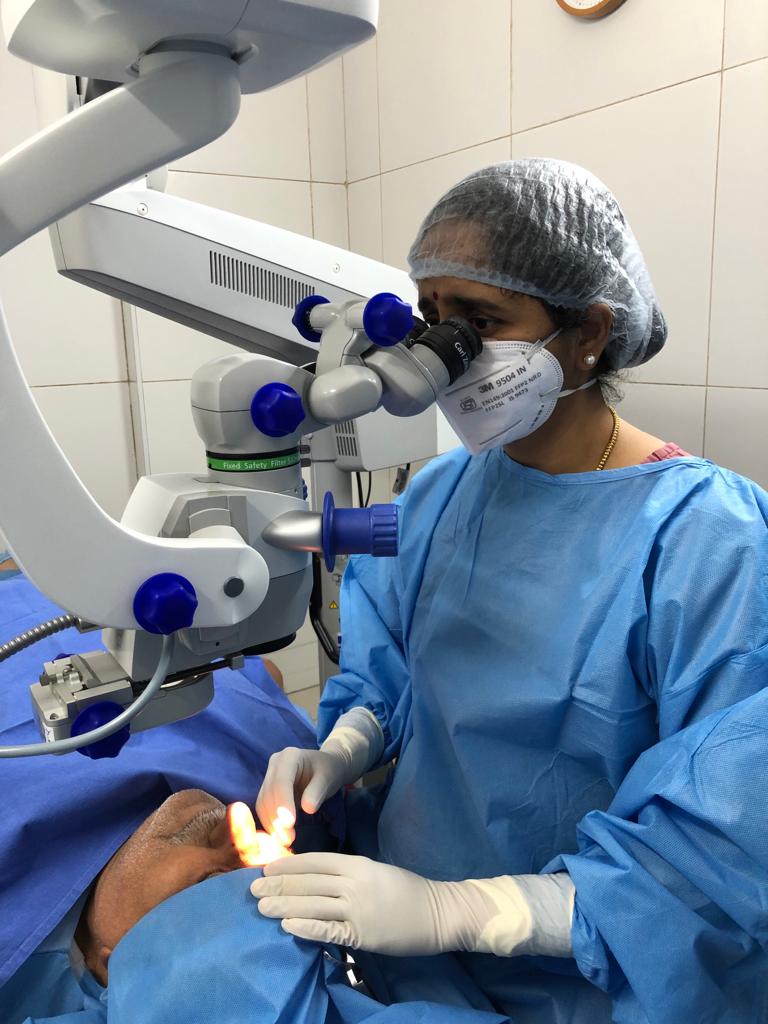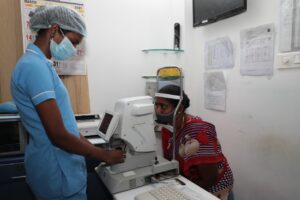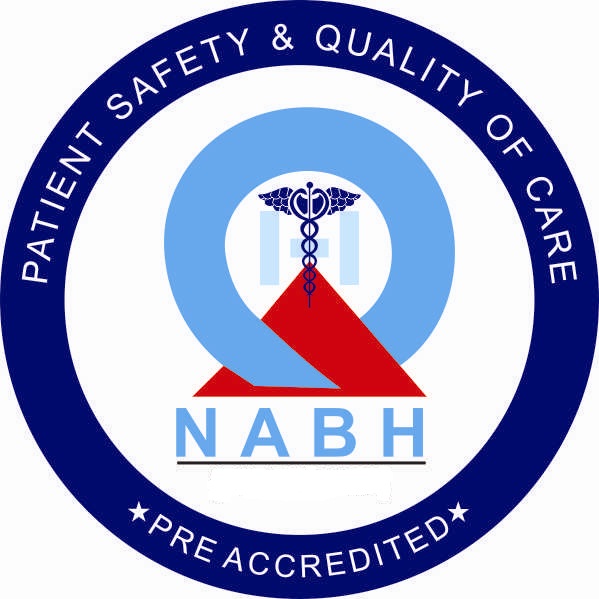
“The state of the art” Phacoemulsification system and Microscope aid in performing the most advanced phaco procedure. MICS (Microincision Cataract Surgery) done through an unbelievable 1.8mm opening with implantation of the best IOLs in the world viz. Aspheric / aberration free Monofocal, Multifocal, Trifocal, Toric and Accommodative IOLs are being performed at Dr.K.K.Surgical and Peadiatric centre, Selaiyur with excellent results.

The team in this service treats cataract, a common eye condition, in which the lens becomes progressively opaque, resulting in blurred vision.
Cataract surgery is generally recommended when your cataract has progressed to the point that it is interfering with your daily activities and lifestyle. It is usually safe to delay surgery if you do not feel you have a problem with your vision, or don’t want to have an operation.
Modern cataract surgery is usually quick and can be performed using a local anaesthetic only. Most people are able to return to work the day after their operation. During surgery, your lens is usually replaced with a clear plastic lens, called an intraocular lens (IOL). For most patients, the new lens is chosen to aim for focused distant vision after the operation. Many people still require glasses for fine focusing in the distance and it is usual for you to need reading glasses after your operation.
Treatment
Cataract cannot be corrected with glasses, the clouding of the natural lens essentially prevents that. There is no specific medication to cure it, patients undergo surgeries for cataract removal instead. Centre For Sight offers a number of surgical options depending upon the severity of the cataract, its cause and current condition of the patient’s eyes. The surgery best suited to the case is suggested after thorough testing only.
Testing for Cataract :
At our centre, a team of medical professionals like optometrists, doctors, nurses and surgeons are assigned to the patient for testing and treatment. If the cataract is harmless, it can be left untouched. As soon as it starts to truly block vision in routine things, one should look into testing and surgical solutions.
The different types of tests we do here are:

- IOL Master/ Biometry/ Intraocular Lens (IOL) Work up: to check the IOL power required in the eyes.
- Thorough slit lamp examination : to check the status of the cornea and for any other associated disease
- OCT test: to check for any retinal pathology.
- Fundus Photography to check the well-being of retina and other structures inside the eye.
- Pentacam test: to test irregularities in cornea due to past LASIK/ PRK/ RK surgeries.
Surgeries for Cataract:
There are many ways to perform cataract-removal surgeries, and here are the types of surgeries that we conduct at our Centre:
- Microincision Cataract Surgery (MICS): In this method, a 1.8mm to 2mm large incision is made by the surgeon for replacement of natural lens with an artificial lens. Everything from the incision to the breaking of the lens into smaller pieces for easing its removal, is done manually by the surgeon. It is an incredibly delicate task that requires a lot of skill from the doctors.
- Femto Laser Assisted Cataract Surgery (FLACS): In this type of surgery, the first 5 steps of the surgery are automated, reducing the time and energy put into the otherwise manual surgery. The incisions are blade-free, the capsulotomy is precise and the cataract is considerably softer.
There a numerous types of intraocular lens (IOL) options that we use to replace the original one:
- Monofocal IOL: It is a lens beneficial for distance vision, but will require the patient to wear spectacles for computer work or reading after the surgery is performed.
- Premium Monofocal IOL: This lens is not perfectly spherical in shape. Due to its high definition nature, it provides both quantity and great quality of vision with its contrast & light sensitivity, leading to great picture quality. Yet, the patient usually has to wear glasses after surgery because it’s still a monofocal lens.
- Multifocal Lens IOL: For most day-to-day activities, this lens provides great vision without the need for corrective glasses. Some patients still may experience halos and glares during night driving.
- Newer Multifocal IOL: Most of the issues that were present in the multifocal lens are resolved in this lens. Thus, the halos and glares are also reduced. There are 2 main types of multifocal lens that we provide at our Centre:
- Extended Depth of Focus Lens : Since this lens is binocularly implanted, it facilitates active near vision and good vision for distance, without any glares and halos.
- Trifocal Lens: This lens is good for reading, distance vision and for intermediate distance vision including computer work.



